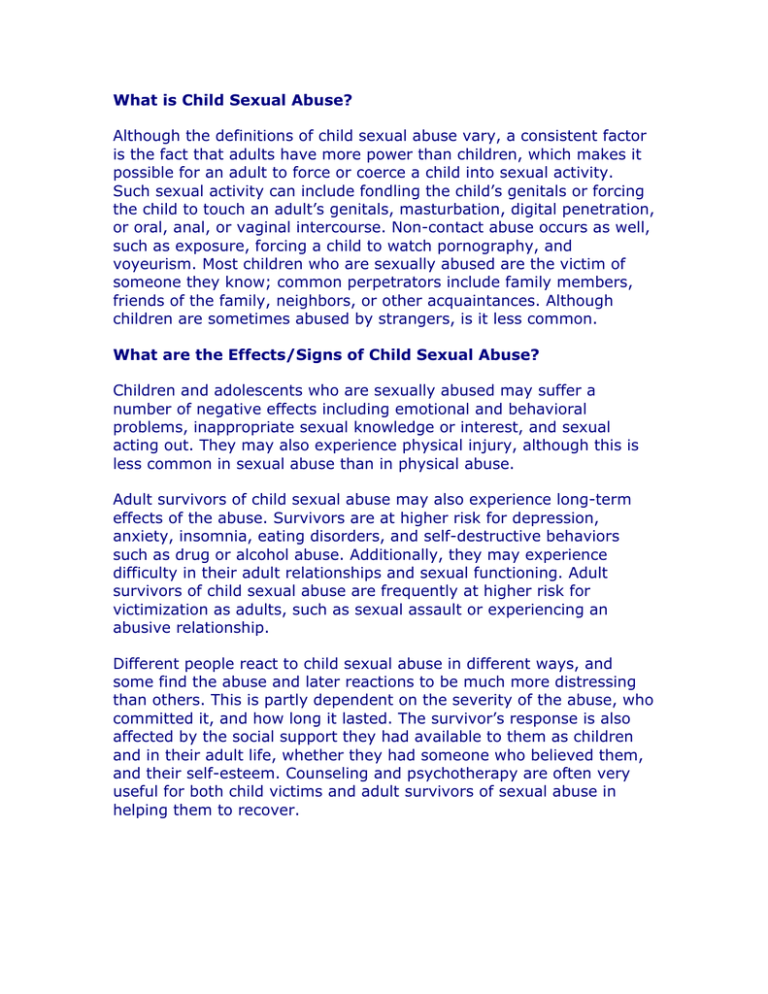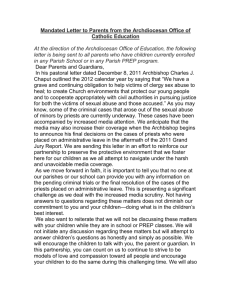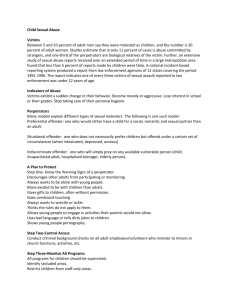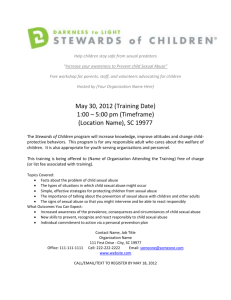What is Child Sexual Abuse?
advertisement

What is Child Sexual Abuse? Although the definitions of child sexual abuse vary, a consistent factor is the fact that adults have more power than children, which makes it possible for an adult to force or coerce a child into sexual activity. Such sexual activity can include fondling the child’s genitals or forcing the child to touch an adult’s genitals, masturbation, digital penetration, or oral, anal, or vaginal intercourse. Non-contact abuse occurs as well, such as exposure, forcing a child to watch pornography, and voyeurism. Most children who are sexually abused are the victim of someone they know; common perpetrators include family members, friends of the family, neighbors, or other acquaintances. Although children are sometimes abused by strangers, is it less common. What are the Effects/Signs of Child Sexual Abuse? Children and adolescents who are sexually abused may suffer a number of negative effects including emotional and behavioral problems, inappropriate sexual knowledge or interest, and sexual acting out. They may also experience physical injury, although this is less common in sexual abuse than in physical abuse. Adult survivors of child sexual abuse may also experience long-term effects of the abuse. Survivors are at higher risk for depression, anxiety, insomnia, eating disorders, and self-destructive behaviors such as drug or alcohol abuse. Additionally, they may experience difficulty in their adult relationships and sexual functioning. Adult survivors of child sexual abuse are frequently at higher risk for victimization as adults, such as sexual assault or experiencing an abusive relationship. Different people react to child sexual abuse in different ways, and some find the abuse and later reactions to be much more distressing than others. This is partly dependent on the severity of the abuse, who committed it, and how long it lasted. The survivor’s response is also affected by the social support they had available to them as children and in their adult life, whether they had someone who believed them, and their self-esteem. Counseling and psychotherapy are often very useful for both child victims and adult survivors of sexual abuse in helping them to recover. What can I do? Recovering from childhood sexual abuse can be a difficult process, but there are a number of resources available to you. Many people have never told anyone about the abuse, or are afraid that they won’t be believed. Some are unsure if what happened to them really was abuse or not, or may have difficulty remembering details. Psychotherapists and counselors can help you deal with these issues as well and are available at Student Psychological Services on campus.




